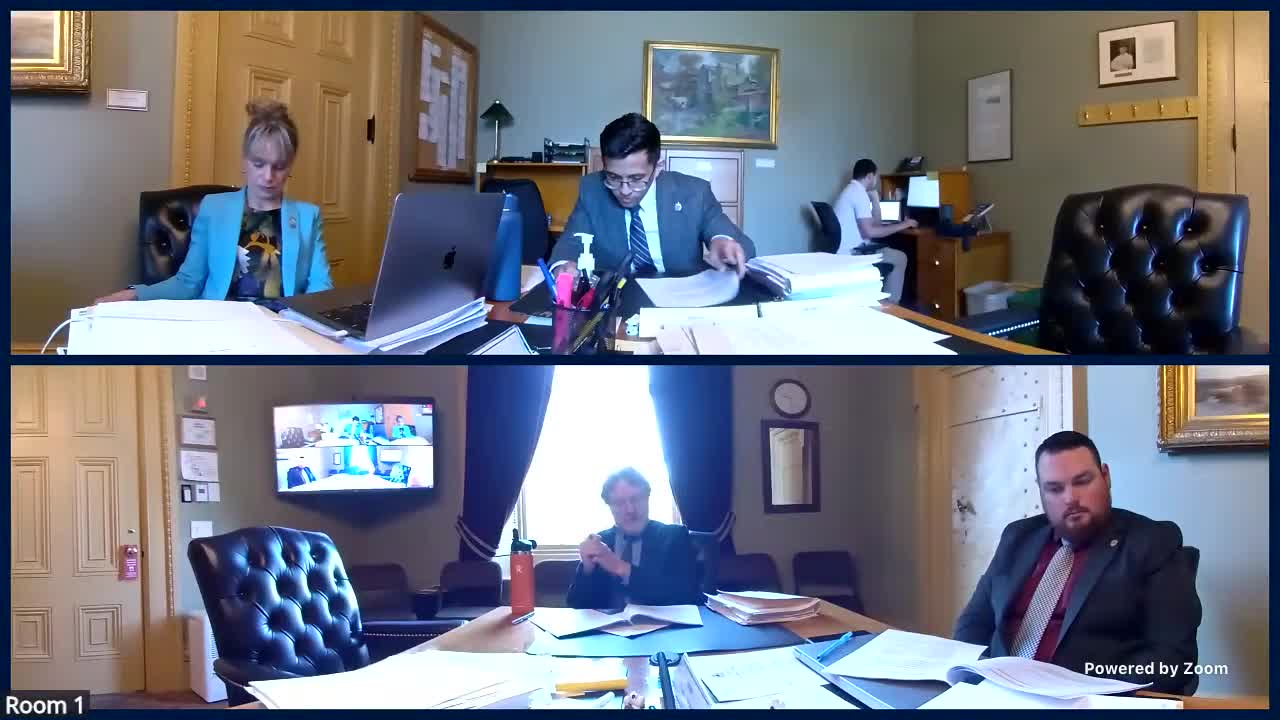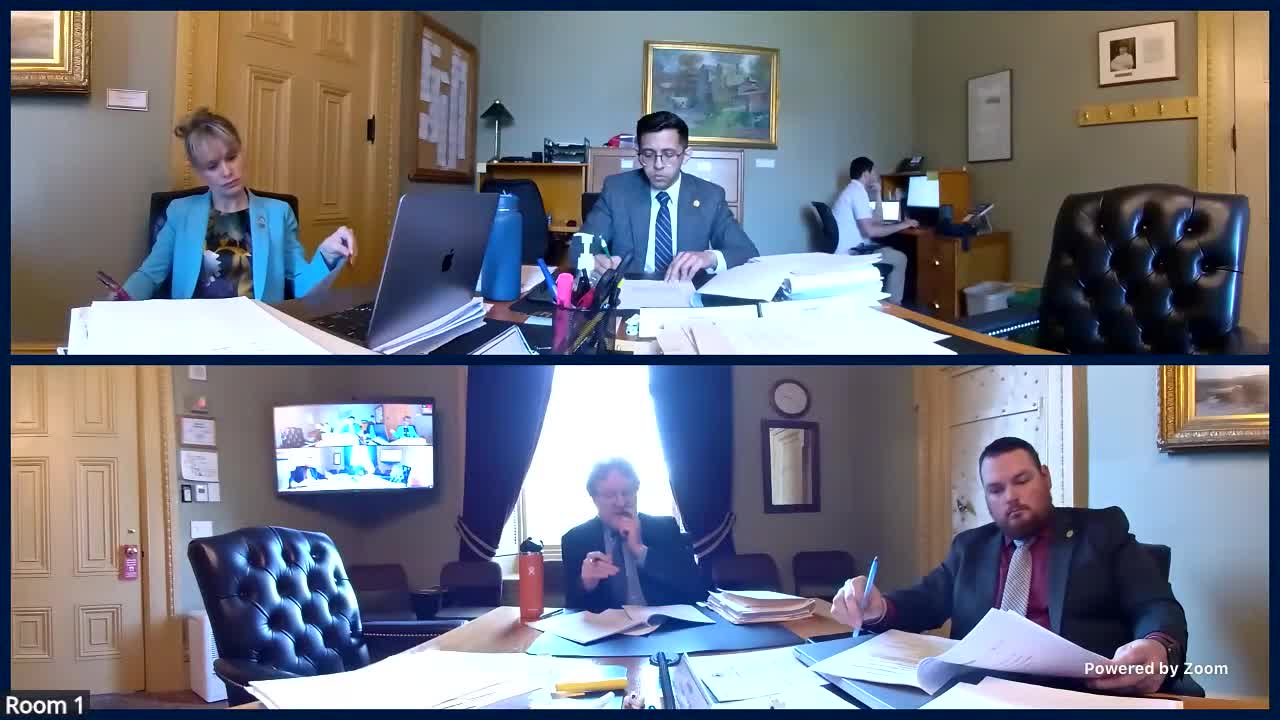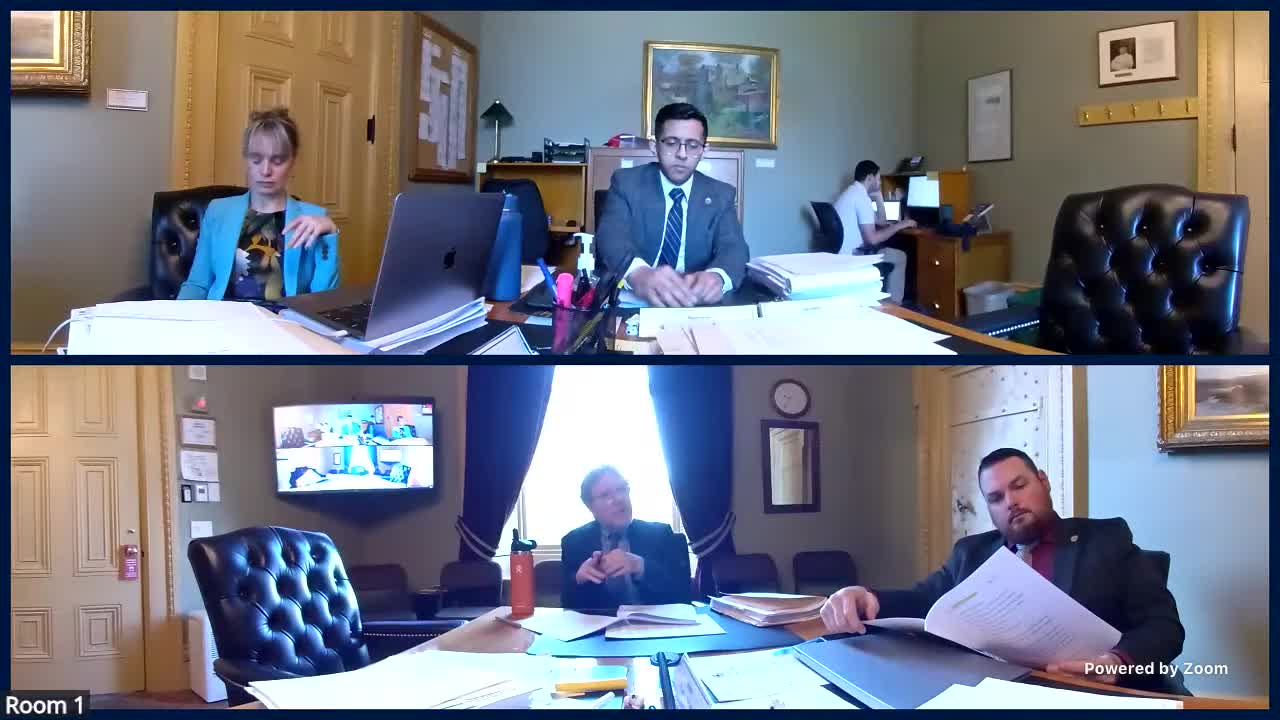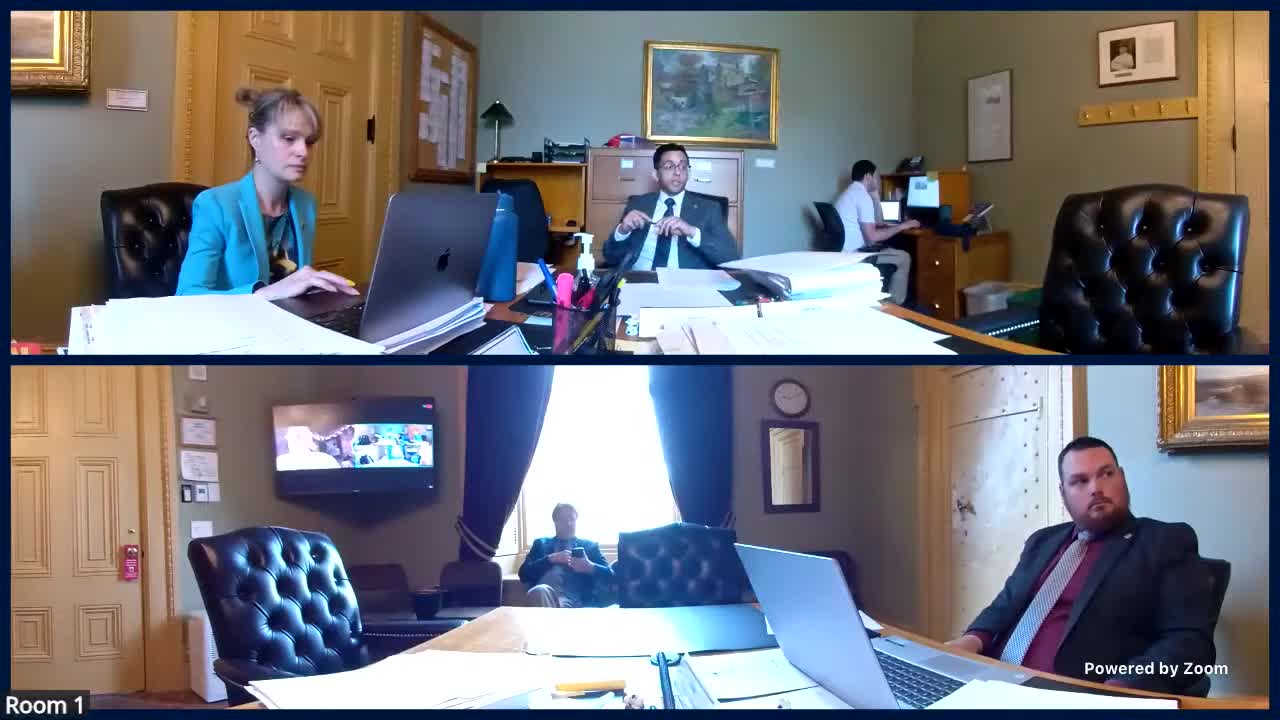Article not found
This article is no longer available. But don't worry—we've gathered other articles that discuss the same topic.

House fixes carve‑out so child‑support nonpayment can be considered in contested adoptions but not in DCF termination cases

Committee reviews House changes to firearms‑surrender working group membership and consultative list

House amendments add intervenor compensation and create victim‑notification review in judiciary bill

